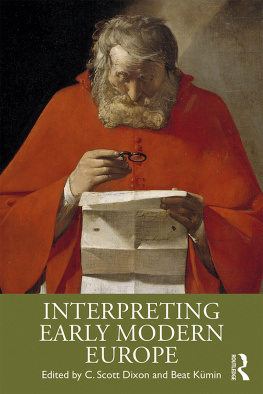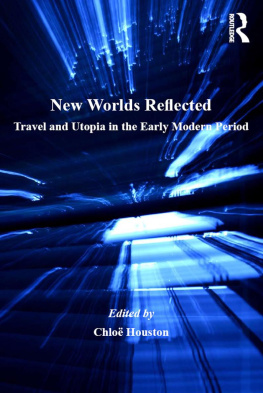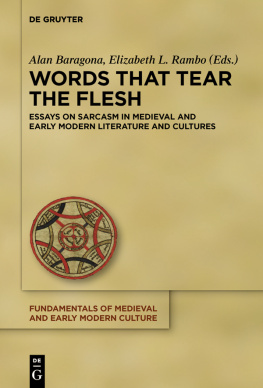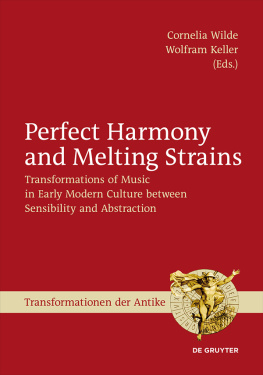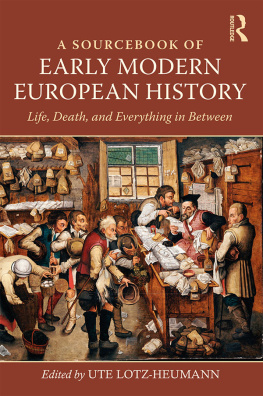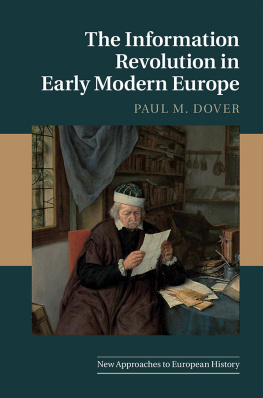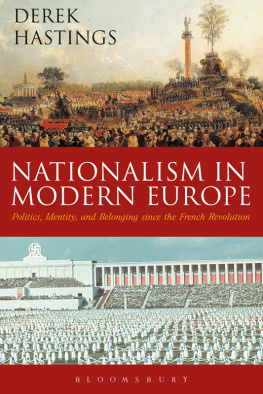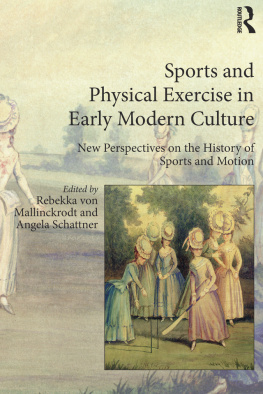Interpreting Early Modern Europe
Interpreting Early Modern Europe is a comprehensive collection of essays on the historiography of the early modern period (circa 14501800).
Concerned with the principles, priorities, theories, and narratives behind the writing of early modern history, the book places particular emphasis on developments in recent scholarship. Each chapter, written by a prominent historian caught up in the debates, is devoted to the varieties of interpretation relating to a specific theme considered integral to understanding the age, providing readers with a behind-the-scenes look at how historians have worked, and still work, within these fields. At one level the emphasis is historiographical, with the essays engaged in a direct dialogue with the influential theories, methods, assumptions, and conclusions in each of the fields. At another level the contributions emphasise the historical dimensions of interpretation, providing readers with surveys of the component parts that make up the modern narratives.
Supported by extensive bibliographies, primary materials, and appendices with extracts from key secondary debates, Interpreting Early Modern Europe provides a systematic exploration of how historians have shaped the study of the early modern past. It is essential reading for students of the period.
C. Scott Dixon is Senior Lecturer at Queens University Belfast, UK. His previous books include Protestants: A History from Wittenberg to Pennsylvania, 15171740 (2010), Contesting the Reformation (2012), and The Church in the Early Modern Age (2016).
Beat Kmin is Professor of Early Modern European History at the University of Warwick, UK. His publications include Drinking Matters (2007), Imperial Villages: Cultures of Political Freedom in the German Lands c. 13001800 (2019) and the edited collection The European World 15001800: An Introduction to Early Modern History (3rd edn, 2018).
First published 2020
by Routledge
2 Park Square, Milton Park, Abingdon, Oxon OX14 4RN
and by Routledge
52 Vanderbilt Avenue, New York, NY 10017
Routledge is an imprint of the Taylor & Francis Group, an informa business
2020 selection and editorial matter, C. Scott Dixon and Beat Kmin; individual chapters, the contributors
The right of C. Scott Dixon and Beat Kmin to be identified as the authors of the editorial material, and of the authors for their individual chapters, has been asserted in accordance with sections 77 and 78 of the Copyright, Designs and Patents Act 1988.
All rights reserved. No part of this book may be reprinted or reproduced or utilised in any form or by any electronic, mechanical, or other means, now known or hereafter invented, including photocopying and recording, or in any information storage or retrieval system, without permission in writing from the publishers.
Trademark notice: Product or corporate names may be trademarks or registered trademarks, and are used only for identification and explanation without intent to infringe.
British Library Cataloguing-in-Publication Data
A catalogue record for this book is available from the British Library
Library of Congress Cataloging-in-Publication Data
A catalog record has been requested for this book
ISBN: 978-1-138-79900-4 (hbk)
ISBN: 978-1-138-79901-1 (pbk)
ISBN: 978-0-429-32457-4 (ebk)
The authors and editors would like to thank the copyright holders of illustrations featured in this book. Every effort has been made to contact copyright holders and to obtain necessary permissions. Please advise the publisher of any errors or omissions, and these will be corrected in subsequent editions.
Figures
Tables
Bruno Blond is Professor of History at the University of Antwerp. His prevous books include Een economie met verschillende snelheden: ongelijkheden in de opbouw en de ontwikkeling van het Brabantse stedelijke netwerk (ca. 1750ca. 1790) (1999) and (as a co-editor) City and Society in the Low Countries, 11001600 (2018).
Euan Cameron is Henry Luce III Professor of Reformation Church History at Union Theological Seminary in New York City, and a member of the Department of Religion at Columbia University. His books include The European Reformation (2nd edn. 2012) Waldenses (2000), Interpreting Christian History (2005) and Enchanted Europe (2010). Recent edited volumes include the third volume of The New Cambridge History of the Bible, covering 14501750 (2016), and volume 6 of the Annotated Luther, entitled The Interpretation of Scripture (2017).
James B. Collins is Professor of History at Georgetown University, Washington, DC. His most recent publication is La monarchie rpublicaine. tat et socit dans la France moderne (2016); his two-volume examination of the relationship among the practice, rhetoric, and theory of politics in France, 13561560 and 15611651, should be out in 2020.
Noah Dauber is Associate Professor of Political Science at Colgate University. He is the author of State and Commonwealth (2016). He is currently working on a book on Hobbess ethics.
C. Scott Dixon is Senior Lecturer at Queens University Belfast. His previous books include Protestants: A History from Wittenberg to Pennsylvania, 15171740 (2010), Contesting the Reformation (2012), and The Church in the Early Modern Age (2016). He is currently working on a study of the early modern German forest.
Kathryn A. Edwards is Professor of History at the University of South Carolina. Her publications include Leonardes Ghost: Popular Piety and The Appearance of a Spirit in 1628 (2008) and Everyday Magic in Early Modern Europe (2015) as well as the forthcoming Living with Ghosts: The Dead in European Society from the Black Death to the Enlightenment and the edited Brill Companion to the Devil and Demons.
Dagmar Freist is professor of early modern history at the Carl von Ossietzky University Oldenburg. She is director of the long term digitization and research project prize papers. In her research she focuses on global microhistory, practices of religious coexistence and conflict, public sphere, and state building. Her recent books include Glaube Liebe Zwietracht. Religis-konfessionell gemischte Ehen in der Frhen Neuzeit (2017) and she co-edited Connecting Worlds and People. Early modern diasporas (2017).
Mark Greengrass is Emeritus Professor of Early-Modern History at the University of Sheffield and Associate of the Centre Roland Mousnier (UMR 8596), Universit de Paris-Sorbonne. His recent publications include Christendom Destroyed. Penguin History of Europe Vol. V (2014) and (with Thierry Rentet and Stphane Gal), tre Lieutenant Gnral en 1572. La correspondance de Bertrand de Simiane de Gordes (2016).
Paul Hanson is Professor of History at Butler University in Indianapolis, IN, USA. His most recent book is Contesting the French Revolution (2009). He is currently at work on a book comparing the Terror in the French Revolution to the Cultural Revolution in China.
John Henry is professor emeritus at the University of Edinburgh, Scotland. His publications include The Scientific Revolution and the Origins of Modern Science

